The days keep doing this thing where they blend together; one week rolls into another and I don’t feel like I’ve accomplished much of anything. This is particularly funny given how many things are on my desk right now. The main problem is I’m smack dab in the middle of a bunch of big projects and, for whatever reason, the projects I have basically completed feel very distant.
Measure for Measure closes this Saturday, but the bulk of my work on this show happened over the summer. I’m proud to have worked on it, but for whatever reason the show’s run doesn’t feel like anything real or tangible. Insert some comment about the fleeting nature of live theatre here.
Twelfth Night rehearsals continue and we’re starting to really have a show. We did some
costume/prop digging last night and have most of our cast clothed (of course, I’m one of the exceptions since my quick-changes partnered with the two drastically different roles I’m playing make me exceedingly difficult to costume… but! I have a vast wardrobe and a gay best friend to help; we’ll work it out). Again, this doesn’t feel really real yet… we’ll see what happens when we start inserting props and costumes into the rehearsal space.
I got a big proposal off my team’s desk for my ASTR sub-committee, but the project’s in a holding pattern until it is approved by the big cheese Executive boards. We are doing a wonderful job of hurrying up to wait. The brief thrill of excitement at having submitted the proposal was quickly quashed by the dawning realization that we had created a lot of work for ourselves, but couldn’t do any of it until we were given the official green light to continue. Work hanging over my head about which I can do nothing is perhaps the worst feeling in the world. Ah well; provided the project is thumbs-upped by all official parties, it should be a very useful thing for the Graduate Student community. Here’s hoping!
I’m working on a lecture for the class I’m TAing. Actually, I’m writing this entry as a method of procrastinating from compiling my research notes. I’m certain that this particular project will become more real-feeling as soon as it is anything more than a pile of disparate word documents. Maybe a PowerPoint will help. PowerPoints always make things more real.
Reading, reading, reading for my coursework. This is a tiresome and thankless job and there’s always more to do. Completing the week’s reading never feels like an accomplishment because there’s just going to be more dumped on your plate right after. Really, finishing your assigned reading for the week just means you should be working harder on your papers, presentations, abstracts, or side projects. Blargh.
German progresses apace (though I took the weekend off to be with my family who came to town to visit me). As the date of my exam draws loomingly closer (it’s in April, it’s not really all that close), I worry more and more about my own ability to translate anything not written for an eight year old audience. I’m probably ready to step up my practice reading to something a little more convoluted than Grimm’s. The Grimm’s tales are great and they were wonderful to get my feet wet, but I’m reading them pretty solidly now (with the occasional pause for vocabulary check). The test is going to be administered on the level of academic-style writing; not exactly children’s fables. Ah well. Bring on the crazy grammar constructions and crammed-together German words.
Podcasting is a constant joy interspersed with panic at finding the time to do it. The posting has been on hiatus for a few weeks due to my Partner’s real-life exploding all over him. We should be back tomorrow with the wrap-up of Comedy of Errors and then onward next week to one of my favorite plays Love’s Labour’s Lost. In case you haven’t already, go check us out! We make great buddies for your commute!
So despite my busy busy schedule, nothing seems to be landing at the moment. My life may be fast-paced and exciting, but it’s all a bit hollow right now. I’m certain the feeling will pass; really what I want is a couple weeks off and somewhere sunny to go without worry about Renaissance playwrights. Is that an awful lot to ask?
Well, in any case, I did have fun with my family. Here’s some videographic proof.
[youtube http://www.youtube.com/watch?v=2W8QaCwi56c]





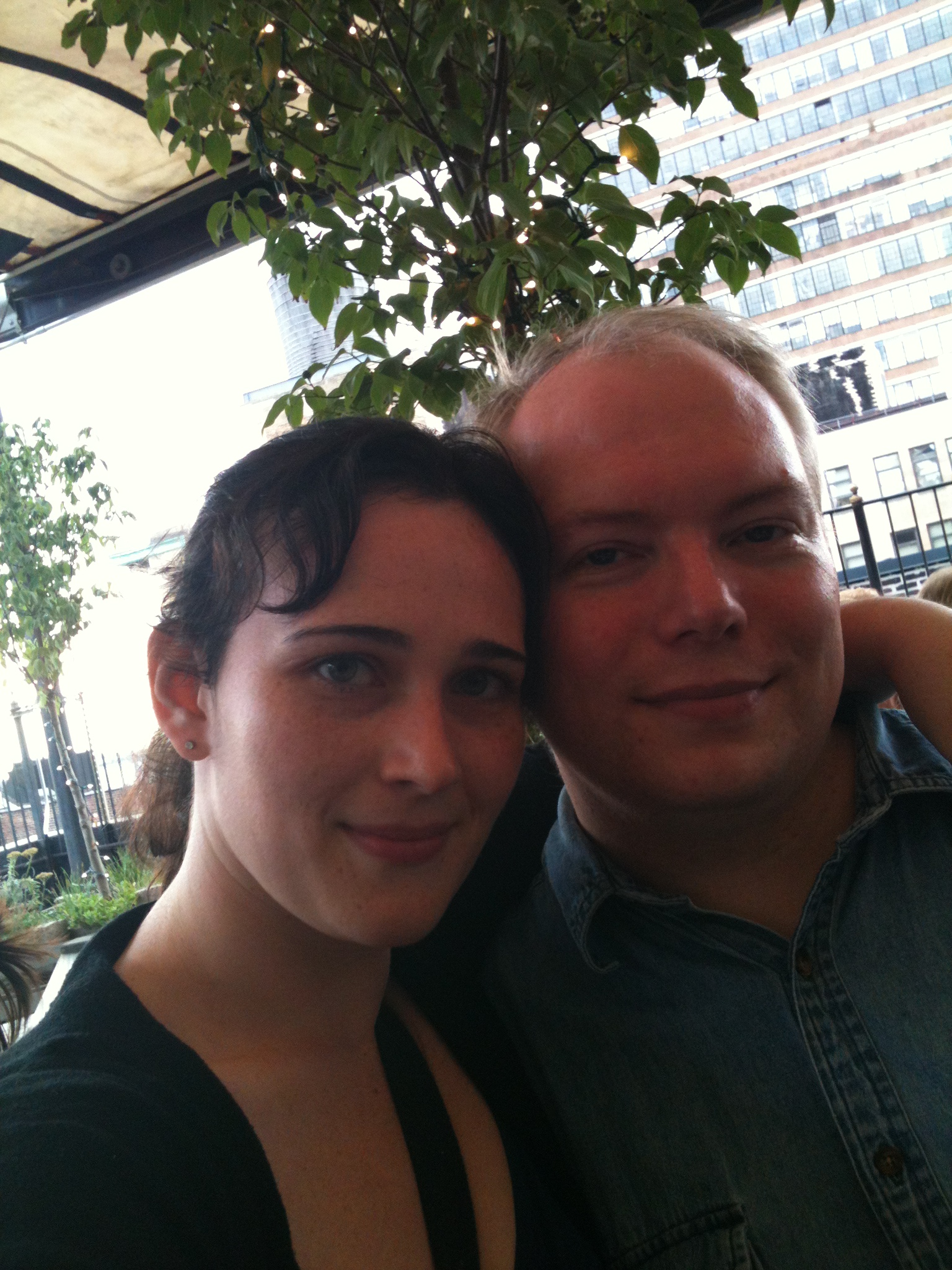

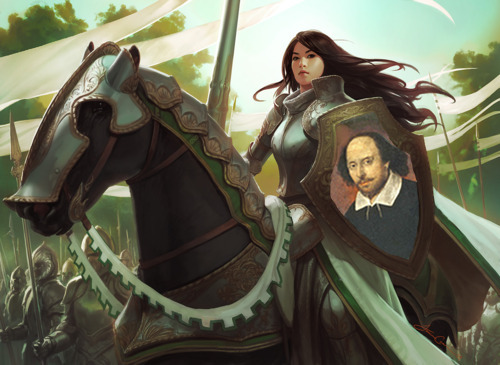

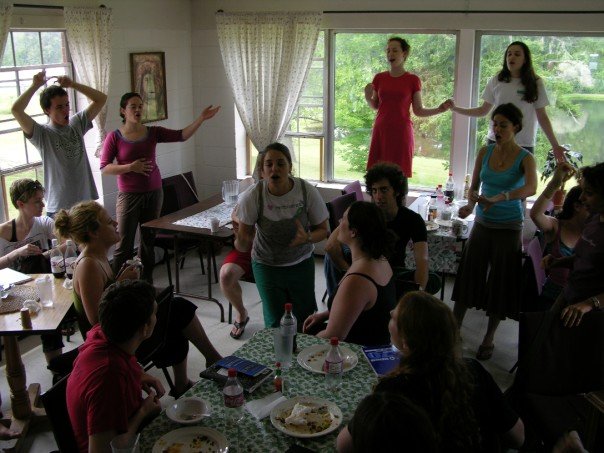
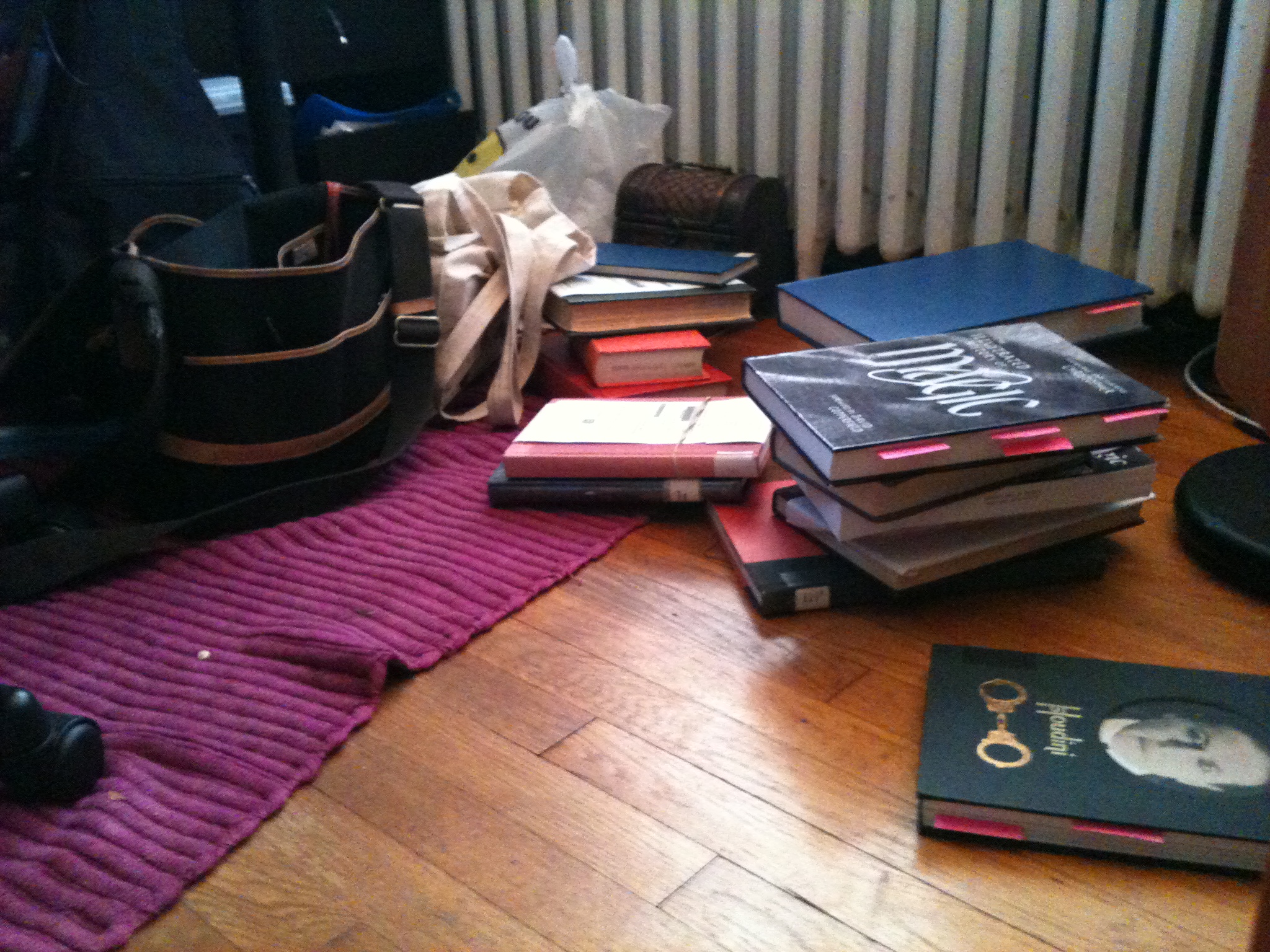



 actors are going to be undergraduates with no specialized training or expansive experience), our process so far has been as such: we meet for three hours once or twice a week and read the entire script aloud to each other. As we go through, we have found ways to either cut, trim, or keep lines.
actors are going to be undergraduates with no specialized training or expansive experience), our process so far has been as such: we meet for three hours once or twice a week and read the entire script aloud to each other. As we go through, we have found ways to either cut, trim, or keep lines.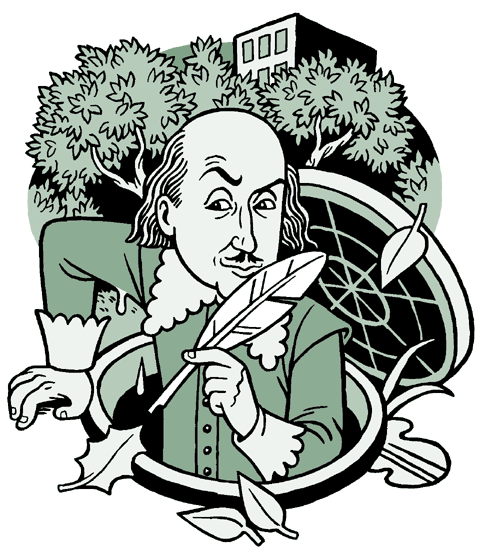 So we’re not of COMPLETELY different camps (at least I’m not in the English department), but we are definitely on two sides of the scholarly/practical divide. Coming together to create this project is really what I wanted when I decided to get my PhD. I love Shakespeare. Period. I love everything about his plays, how they’re performed, and how audiences react to them. Having the opportunity to craft both a set of amateur actors’ experience with Shakespeare as well as an audience’s experience with Shakespeare is the ultimate gratification for me.
So we’re not of COMPLETELY different camps (at least I’m not in the English department), but we are definitely on two sides of the scholarly/practical divide. Coming together to create this project is really what I wanted when I decided to get my PhD. I love Shakespeare. Period. I love everything about his plays, how they’re performed, and how audiences react to them. Having the opportunity to craft both a set of amateur actors’ experience with Shakespeare as well as an audience’s experience with Shakespeare is the ultimate gratification for me.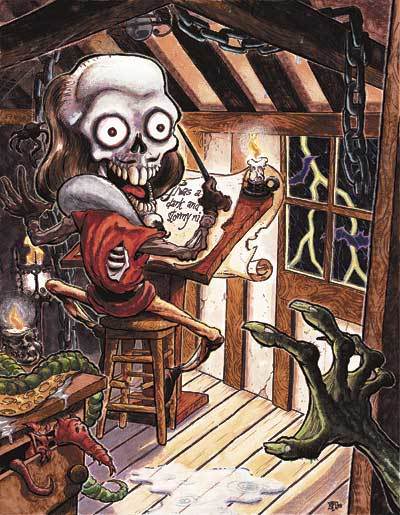
 This also complicates Hamlet’s killing of Polonius, as when he hears a rustling in the curtains of his mother’s bedchamber he could potentially believe it to be an undead foe and, thereby, shoot said foe in the head before it leapt out to attack. Polonius becomes an unfortunate victim of the country’s political strife as opposed to the sacrificial lamb of Hamlet’s madness.
This also complicates Hamlet’s killing of Polonius, as when he hears a rustling in the curtains of his mother’s bedchamber he could potentially believe it to be an undead foe and, thereby, shoot said foe in the head before it leapt out to attack. Polonius becomes an unfortunate victim of the country’s political strife as opposed to the sacrificial lamb of Hamlet’s madness.
